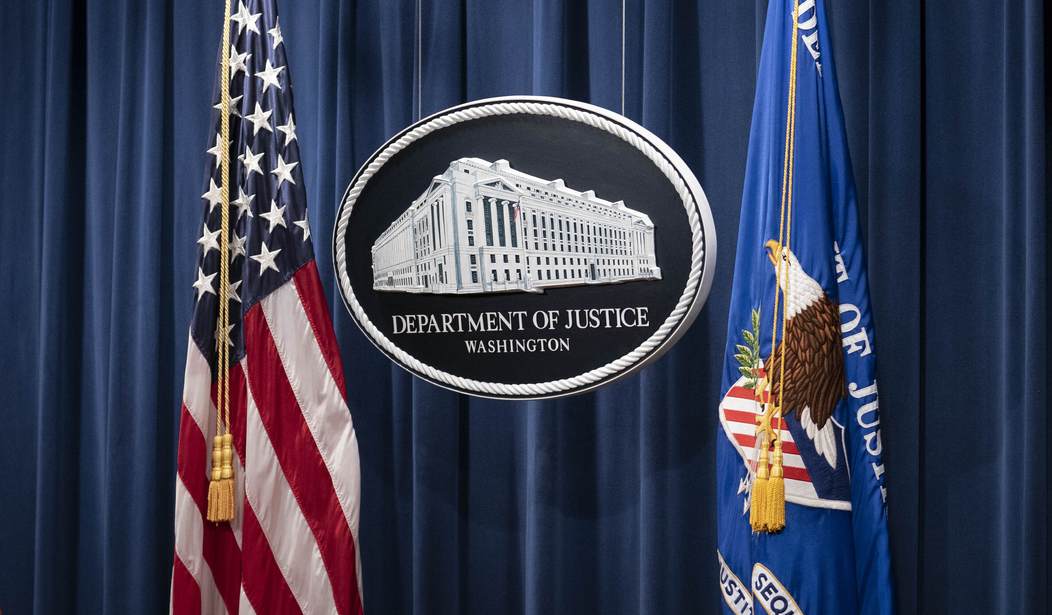A Canadian national who was a resident of China pleaded guilty to a corporate espionage conspiracy targeting "a leading U.S.-based electric vehicle company," just the latest case of CCP-linked individuals threatening America's economic interests and national security.
Klaus Pflugbeil, a 58-year-old, admitted his role in the conspiracy to steal trade secrets with his co-defendant Yilong Shao — who "remains at large" — according to the U.S. Department of Justice.
Pflugbeil and Shao owned a Chinese business that "sold technology used to make batteries, including batteries used in electric vehicles," explained the DOJ in an announcement on the case's outcome. Pflugbeil, who used to work for a company eventually purchased by the "leading U.S.-Based electric vehicle company," stole trade secrets and used them to build his company with Shao that marketed itself "as a replacement" for the products made by the company from which he stole the intellectual property.
"Despite Pflugbeil’s agreement to protect what he knew was proprietary, sensitive technology, he chose to abscond with these trade secrets to China, where he sought an unfair and illegal advantage in critical industries such as electric vehicle manufacturing," a statement from Assistant Attorney General Matthew G. Olsen of the Justice Department’s National Security Division emphasized. "With his guilty plea, Pflugbeil is now being held accountable for this unlawful conduct that jeopardized our national security."
More details on how the conspiracy developed via the Justice Department:
According to court documents, Victim Company-1 is a U.S.-based leading manufacturer of battery-powered electric vehicles and battery energy systems. In 2019, Victim Company-1 acquired a Canada-based manufacturer of automated, precision dispensing pumps and battery assembly lines (the Canadian Manufacturer). Prior to its purchase by Victim Company-1, the Canadian Manufacturer sold battery assembly lines to customers who manufactured alkaline and lithium-ion batteries for consumer use. The battery assembly lines contained or utilized a proprietary technology now owned by Victim Company-1: continuous motion alkaline battery assembly (the Battery Assembly Trade Secret). The proprietary technology provided a substantial competitive advantage to Victim Company-1 in the battery manufacturing process.
Both Pflugbeil and Shao are former employees of the Canadian Manufacturer. As detailed in court documents, by no later than 2019, Pflugbeil and Shao planned to use Victim Company-1’s trade secrets for their own business activities. Pflugbeil told Shao that he had “a lot of original documents” related to the technology and sought out more “original drawings” of the trade secrets. Shao subsequently confirmed, among other things that, “we have all of original assembly drawings by PDF.”
The conspirators took measures to obfuscate that they had stolen documents. For example, Pflugbeil wrote to Shao about a document he created based on a document that Shao had stolen from Victim Company-1, “[its] in a different format, so it looks very original and not like a copy.”
In or about July 2020, Pflugbeil joined Business-1, a company previously established by Shao, which has since expanded to locations in China, Canada, Germany and Brazil. Business‑1 makes the same precision dispensing pumps and battery assembly lines that the Canadian Manufacturer developed. Business-1 was marketed by Pflugbeil as an alternative source for the sale of products that relied upon Victim Company-1’s trade secrets, publishing online advertisements on Google, YouTube and LinkedIn.
Pflugbeil purchased ads on Google for Business-1. These ads read, for example, “[Business-1] | Replacing [Canadian Manufacturer] Pumps & Parts | [Canadian Manufacturer] Identical Spare Parts. We manufacture precision metering pumps and fill tubes. | Contact Us for your [Canadian Manufacturer] replacement pumps and parts.” In any given week, this ad was shown tens of thousands of times.
Pflugbeil also repeatedly sent LinkedIn messages that said, “Hello [name], I used to work at [Canadian Manufacturer], and after [Victim Company-1] purchased and closed the company, I am now part of a company providing similar products and services.
Recommended
U.S. Attorney for the Eastern District of New York Breon Peace said the "defendant brazenly took what did not belong to him and used stolen trade secrets for his own personal profit knowing those valuable trade secrets were rightfully owned by an American company. Today’s guilty plea demonstrates how this office will swiftly bring to justice those who misappropriate intellectual property belonging to American companies particularly where the use of the technology poses a national security risk," Peace pledged.
The conspiracy unraveled when undercover FBI agents showed up at a Las Vegas trade show in September 2023 posing as "businesspeople who were interested in purchasing a battery assembly line" from the conspirators' Chinese company. The ploy worked and the "agents were introduced to Shao at the trade show and later to Pflugbeil via email."
In November 2023, "Pflugbeil sent, via email, a detailed 66-page technical documentation proposal to an undercover agent" that contained the proprietary trade secrets stolen from his previous employer. The jig was up, the conspiracy was confirmed, and Pflugbeil was charged. He pleaded guilty under the damning evidence against him and will be sentenced up to a maximum of ten years in prison this October.

























Join the conversation as a VIP Member